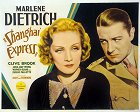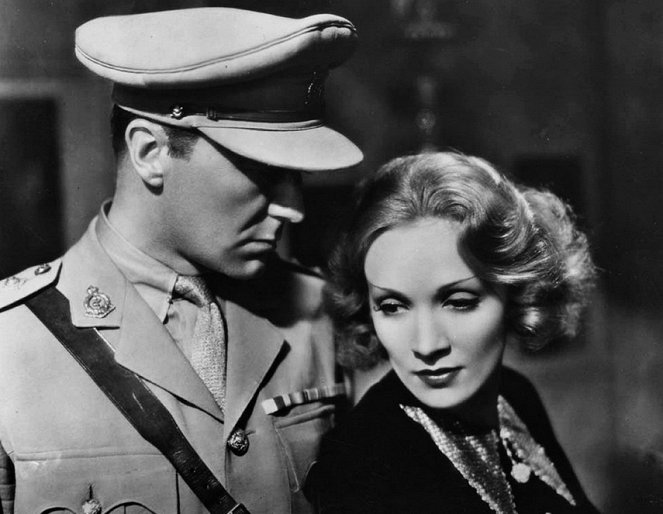Directed by:
Josef von SternbergScreenplay:
Jules FurthmanComposer:
W. Franke HarlingCast:
Marlene Dietrich, Clive Brook, Anna May Wong, Warner Oland, Eugene Pallette, Lawrence Grant, Louise Closser Hale, Gustav von Seyffertitz, Willie Fung (more)Plots(1)
An intoxicating mix of adventure, romance, and pre-Code salaciousness, Shanghai Express marks the commercial peak of an iconic collaboration. Marlene Dietrich is at her wicked best as Shanghai Lily, a courtesan whose reputation brings a hint of scandal to a three-day train ride through war-torn China. On board, she is surrounded by a motley crew of foreigners and lowlifes, including a fellow fallen woman (Anna May Wong), an old flame (Clive Brook), and a rebel leader wanted by the authorities (Warner Oland). As tensions come to a boil, director Josef von Sternberg delivers one breathtaking image after another, enveloping his star in a decadent profusion of feathers, furs, and cigarette smoke. The result is a triumph of studio filmmaking and a testament to the mythic power of Hollywood glamour. (Criterion)
(more)Reviews (3)
The film that defined that great art deco Travis Banton costume with the Mexican rooster feathers and the lace with the diagonal stripe. I've never seen anything like it and probably never will again. Words cannot do it justice. "It took more than one man to change my name to Shanghai Lily."
()
Shanghai Express is similarly narrative as a museum tour. The main and basically only exhibit is Marlene, who apparently travels with her entire wardrobe, as she only needs to change six different outfits (plus nightgowns) on her way to Shanghai. On the one hand, the performative dimension of the constant changing of clothes sets Lily apart from the world of the other characters, who remain in the same clothes throughout the film; on the other hand, it complements the important motif of playing roles, mistaken identities and passing off the fake as something real. Most of the passengers are hiding something or pretending to be someone else. Shanghai Express is not without content, but its core comprises that which would merely be a supporting device in a conventional film, namely the exposing of a fetishised body and role-playing. Marlene is playing only for the sake of playing (as she does). What’s important is not who she plays, but that she plays. Sternberg maximally prioritises this over both the structure of the story and the formalistic rendering of individual shots. The film can also be seen as a series of examples of how to effectively place Dietrich in a given space. The intentional overcrowding of the mise-en-scene with numerous overlapping planes (a visual element that is also accentuated by the atypically slow dissolves) comes across as unrealistic, as if it was “made” specifically for the film, like the wonderfully surreal Marlene. There are hundreds of narratively more cohesive and thus less sluggish films, but I am not aware of many better instructional films on the subject of “making a star”. 75%
()


Ads